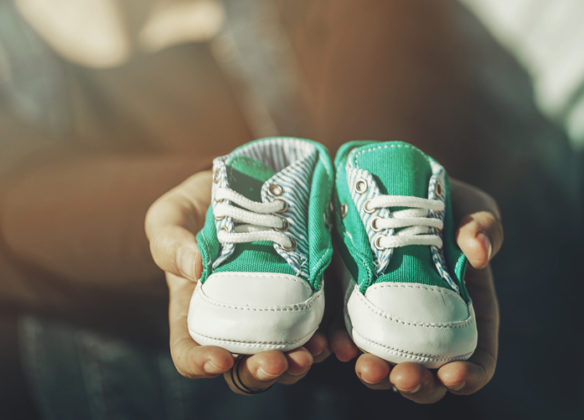Even though I know I have no business having a baby, it feels like a door closing on my fingers every time I see it happen to someone else.
I’ve just learned that friends are expecting in August. Mixed with the rush of joy on their behalf, I feel a pang of envy. Even though I know I have no business having a baby, it feels like a door closing on my fingers every time I see it happen to someone else.
I didn’t come to the decision not to have children lightly, but that doesn’t mean I’m without lingering ambivalence about my choice. In that regard, it has something in common with parenthood—you can love your children and have mixed feelings about being a parent in the same way I can love my childfree life and have mixed feelings about choosing it.
It’s tough to say no to something so widely celebrated and so seemingly natural as motherhood, not that natural is always good or healthy. Ultimately, choosing not to become a mother is declining membership to a large, popular, and powerful club. I can’t be the only one who feels a little left out, which is nearly impossible to talk about since I voluntarily excluded myself.
My biggest fear in mentioning these feelings is that people will take this as a sign I really should have a baby. I’m confident that I should not, but no amount of confidence can make me immune to a chubby foot peeking out of a stroller.
One of the toughest things about this decision is to go on living with a biological clock that continues to tick. It’s like I’m watching the door to the nursery slowly creaking shut while all the plush giraffes and teddy bears silently beg me to sit in the rocking chair and sing lullabies.
I may be sentimental, but I’m not stupid. Parenting involves a lot of spit up and drool and exhaustion, and that’s just infancy. The display of plush toys, cleverly silk-screened onesies, and array of pink and blue receiving blankets that you find in stores seems absurd next to the reality of parenting. It’s that sense of absurdity that buoys me in my decision.
In saying no to motherhood, I’m not just forfeiting loving snuggles and Gerber Baby moments. I’m forfeiting all of it—sleepless nights, tantrums, trips to the ER, parent teacher meetings, 6am hockey practice, bed-wetting, and buckets of things I can’t even imagine.
What I get to have based on this decision is a mixed bag too. I have time for other things, like travel, writing, reading books in one sitting, and of course, I’m available to babysit, but I also feel like there’s an empty parking spot in my heart where the kids could have been. Nothing else fits there, and I suppose, nothing else needs to.
It’s the vacancy that haunts me. It’s a question mark begging what my legacy in life will be. I’m grateful to live in a time when it doesn’t automatically have to be children, but I’m not sure I have it in me to achieve anything important.
Writing to advocate for mental health may be the closest thing I have to a calling, but it’s hardly mutually exclusive with parenthood. And if I’m being honest, living with a mood disorder is often more demanding than the advocacy part. Which leads us to my own lowercase truth: I am not willing to parent with a mood disorder. I am keenly aware that it can be done and done well because I was raised by a parent with a mood disorder, but I am simply unwilling to do it. Seeing the toll that my own mental health struggles took on my mother, above and beyond how they would affect any parent, changed my perspective on motherhood.
It took me over a decade to arrive at my decision, and essentially it’s a decision to prioritize my mental health. I need to pause here to stress the personal nature of my choice. People with mental illnesses have the right to be parents and they can make damn good ones. The key to surviving mental illness is to keep showing up for life, and I think showing up is also a key component of parenting. Mental illness can make stronger parents who are better able to role model resilience. I know this, but I also know that the periods of depression I experience seem to grow longer and more severe as I age. I am fundamentally less available, emotionally and physically, than I was 10 years ago.
My feelings are complicated because for a long time I did picture a life with kids in it, but those dreams have had their own private burial. Even so, they are what I think of when I hear the announcement that you’re expecting. It’s a reminder that it won’t be me. And that’s alright.
I’ve had plenty of time to sit with this, and I wonder if there’s anyone out there who understands: My choice is firm, but my feelings will always be complicated.
Lynda Williams is a writer, tutor, and furniture rehab artist, passionate about mental health advocacy. Her blogs have been featured on bp.hope.com and the mighty.com.
Other Links:

